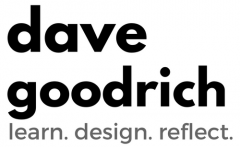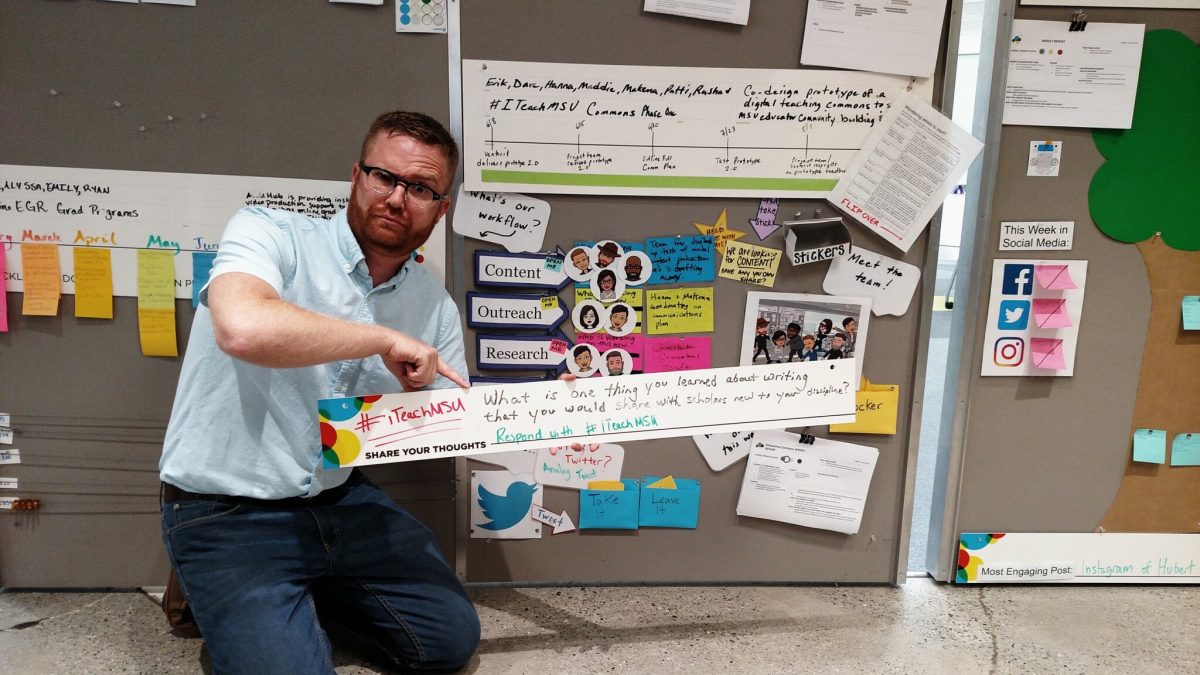I was invited recently to respond to some questions about my PLN from the good folks who put together the Squad Goals Network.
I was invited recently to respond to some questions about my PLN (Professional Learning Network) from the good folks who put together the Squad Goals Network. The questions made me think deeper about the role my PLN has played in my work as an educator for the past 12 years. Ultimately, I believe learning is directly proportional to the depth and quality of one’s own PLN. Read further reflections to their questions below:
Access: Does regular access to other individuals from other institutions and institutional perspectives challenge your definition of access and what it means? If so, how?
Access itself is rooted in the concept of ownership. For instance, I am breathing air currently while sitting in a Wendy’s in Jackson, Michigan. The Wendy’s doesn’t own the air I am breathing, therefore I am not paying for it and I don’t think of it as something I have access to as much as I think of it something available to everyone at anytime and anywhere where our atmosphere reaches. Similarly, I don’t think of my connections to other people that work at other institutions as something I have access to so much as I think is something that I would have a very hard time living without.
I do have a difficult time with the concept of “institutional perspectives.” It simply doesn’t make very much sense to me outside of the context of a common set of values the individuals within an organization have collectively agreed to. How can an institution have a perspective outside of the multiple nuanced perspectives shared within the community of individuals within the institution? And what about the perspectives of those who have been a part of the institution in the past, but no longer officially are. Do they come into play somehow? I think of an institution as a construct that contains a culture of many different people sort-of how I think of my car as a construct that carries me and other passengers from one place to another. I wouldn’t say my car has a perspective so much as I would say it carries people with different perspectives. Does this make sense?
Faculty Satisfaction: How has your participation in the PLN benefitted faculty and colleagues at your home institution?
This might be an interesting question for me to ask of the faculty and colleagues around me. I would hope that my engagement in the PLN has directly benefited those around me by helping them to be connected to intellectual discourse around the ethos of the common work and goals we are all espousing to. If anything, it has challenged their thinking by giving them glimpses into perspectives, practices, failures and successes that can be directly informing our own work. Hopefully, we also have been in the continual practice of giving back in terms of sharing our own learning with our own broader professional learning networks.
Learning Effectiveness: When you reflect on your work, how has meeting and learning from individuals from other institutions and institutional perspectives helped you to clarify or re-define what it means for learning to be effective?
I’ve always understood learning to be a deeply social phenomenon. This is true even in critical aspects of learning that require independent study and reflection. The learning I’ve experienced with and from my PLN has served to clarify for me this truth. It has done so by reminding me of the power of shared experience and storytelling in the context of a community of inquiry as an essential component of my own ongoing professional growth and development. This is reminiscent of any meaningful learning experience I’ve ever encountered. Hopefully, this richly informs my work creating effective learning experience designs.
Scale: Is the PLN scalable and/or replicable by others at other institutions/organizations? If so, how? What challenges do you encounter?
Scalable and replicable are terms that make me queasy. I might reframe this in a way that describes the PLN as a reality encountered already in any effective educational entity. For instance, if someone were ask me if biodiversity is scalable and replicable, I might reply with a pinch of snark by encouraging the asker to open their eyes and look around them. A better question might be what the effects are of monocultures on ecosystem health? Similarly, I fundamentally believe that healthy learning environments are incapable of flourishing without the presence of a healthy community of inquiry being shepherded.
Most challenges I encounter around the concept of PLN development stem from common lethargy regarding the investments needed to make them a reality. You might think of this challenge similarly to how I encounter challenges with staying healthy, fit and in shape. Most of my challenges with these things stem from me lacking the will or discipline to carve out the time and resources needed to habitually be in the practice of various forms of exercise. Similarly, most of my PLN challenges are rooted in a lack of resources devoted to prioritizing my PLN appropriately in the juggling demands of life and work.
Student Satisfaction: Do you feel that your involvement and/or collaboration with the PLN has helped you create better student experiences at at your institution?
Undoubtedly, yes. In fact, if I didn’t benefit in the ways I do from my own PLN, I wouldn’t know the powerful effect it would have on my students. So, I try to encourage and cultivate PLNs for students in ways that are not formally mandated, but that can happen when the right kind of challenges are designed in ways that require learners to navigate them together rather than in isolation. I also try and be as transparent as I can about the positive things I glean on a daily basis from my PLN in terms of having mentors, mentees, sounding boards and critical dialog with folks around the things I am currently dealing with in my educative work or things I am trying to better understand.
It is extremely easy in this work of teaching and learning to fall under the illusive trap of feeling isolated and alone. There is nothing that threatens learning and life more than this deadly illusion. Similarly, there is nothing more opportunistic for learning than to recognize the deeply networked relationships that have always been a constant thread in all of human learning, growth and development. This truth runs deeply throughout history even to the point of a mysterious and little understood notion of collective consciousness.









 Knowledge for Sale
Knowledge for Sale STEM Alliance Fall Reception
STEM Alliance Fall Reception